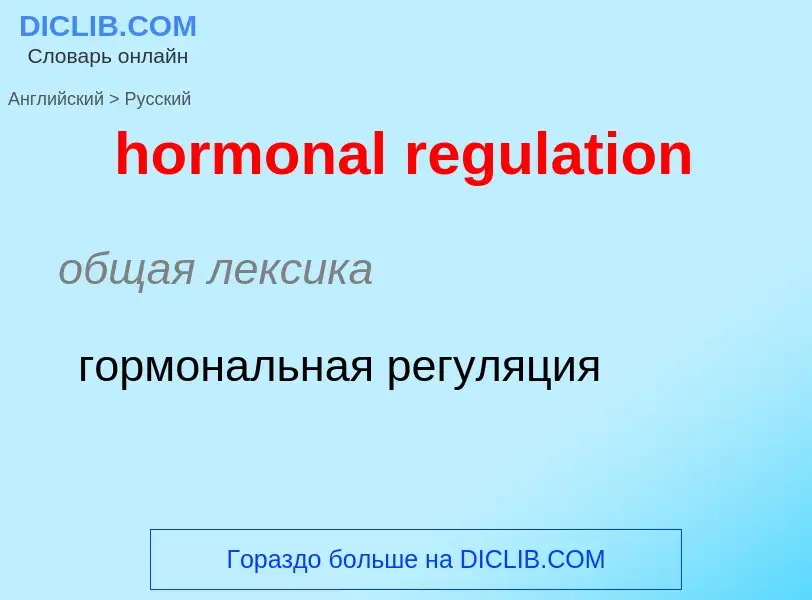Traducción y análisis de palabras por inteligencia artificial ChatGPT
En esta página puede obtener un análisis detallado de una palabra o frase, producido utilizando la mejor tecnología de inteligencia artificial hasta la fecha:
- cómo se usa la palabra
- frecuencia de uso
- se utiliza con más frecuencia en el habla oral o escrita
- opciones de traducción
- ejemplos de uso (varias frases con traducción)
- etimología
hormonal regulation - traducción al ruso
общая лексика
гормональная регуляция
медицина
гормонотерапия
Definición
Wikipedia

Hormonal contraception refers to birth control methods that act on the endocrine system. Almost all methods are composed of steroid hormones, although in India one selective estrogen receptor modulator is marketed as a contraceptive. The original hormonal method—the combined oral contraceptive pill—was first marketed as a contraceptive in 1960. In the ensuing decades many other delivery methods have been developed, although the oral and injectable methods are by far the most popular. Hormonal contraception is highly effective: when taken on the prescribed schedule, users of steroid hormone methods experience pregnancy rates of less than 1% per year. Perfect-use pregnancy rates for most hormonal contraceptives are usually around the 0.3% rate or less. Currently available methods can only be used by women; the development of a male hormonal contraceptive is an active research area.
There are two main types of hormonal contraceptive formulations: combined methods which contain both an estrogen and a progestin, and progestogen-only methods which contain only progesterone or one of its synthetic analogues (progestins). Combined methods work by suppressing ovulation and thickening cervical mucus; while progestogen-only methods reduce the frequency of ovulation, most of them rely more heavily on changes in cervical mucus. The incidence of certain side effects is different for the different formulations: for example, breakthrough bleeding is much more common with progestogen-only methods. Certain serious complications occasionally caused by estrogen-containing contraceptives are not believed to be caused by progestogen-only formulations: deep vein thrombosis is one example of this.


